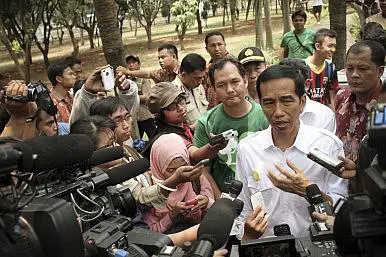Brazil's justice minister on Tuesday defended his country's spying on diplomats from Russia, Iran and Iraq, saying the operations were "completely different" from U.S. spying on Brazil and many other countries.
"I see completely different situations, and any attempt to confuse the two is mistaken," Jose Eduardo Cardozo said.
The Folha de Sao Paulo newspaper on Monday disclosed Brazil's spying on diplomats from Russia, Iran and Iraq, both in their countries' embassies and in their residencies in 2003 and 2004, citing documents issued by the Brazilian Intelligence Agency (ABIN) .
ABIN was involved in counterespionage, which was something "all countries do and must do," the minister said.
"That was counterespionage, which is absolutely legal. When you suspect there are spies operating in Brazil, you use counterespionage to find out if they are spying or not. All countries use and must use counterespionage," he added.
Cardozo said that was different from the surveillance that U.S. intelligence agencies carried out in Brazil and other countries, as revealed by documents leaked by former U.S. National Security Agency contractor Edward Snowden.
The U.S. surveillance scheme, which Washington has not denied, includes intercepting phone calls and emails of millions of ordinary citizens, as well as companies and authorities, including Brazil's President Dilma Rousseff and German Chancellor Angela Merkel.
"Brazil suffered a violation of privacy, messages and calls. The violation practiced by the U.S. is an affront to our sovereignty and Brazil had a strong reaction to it," he said.
Cardozo said the surveillance practiced by ABIN was authorized by Brazilian courts and did not involve unlawful violation of communications. ABIN carried out its surveillance in Brazilian territory, not abroad, as U.S. intelligence agencies did, he added.
The local newspaper reported that in 2003 and 2004, ABIN monitored the diplomats from Russia who were working on the negotiation of military equipment, but were suspected of being spies.
The Iranian ambassador to Cuba was also monitored during a trip to Brazil, the daily said, as were employees of the Iraqi embassy in Brasilia. The Brazilian government was suspicious of the Iraqi diplomats because many of them sought asylum in Brazil when the United States invaded Iraq, it added.
 简体中文
简体中文



